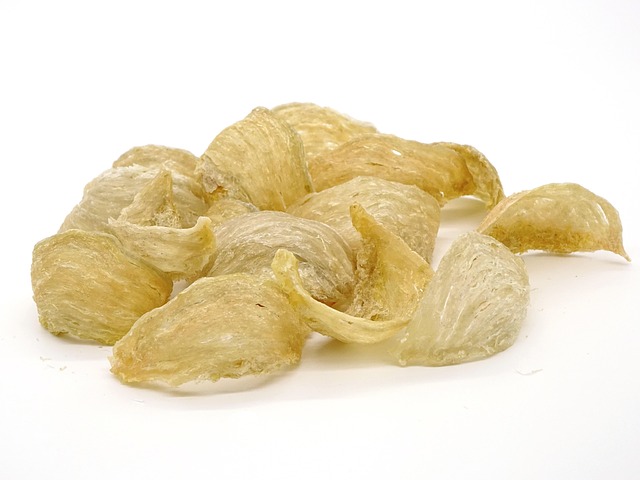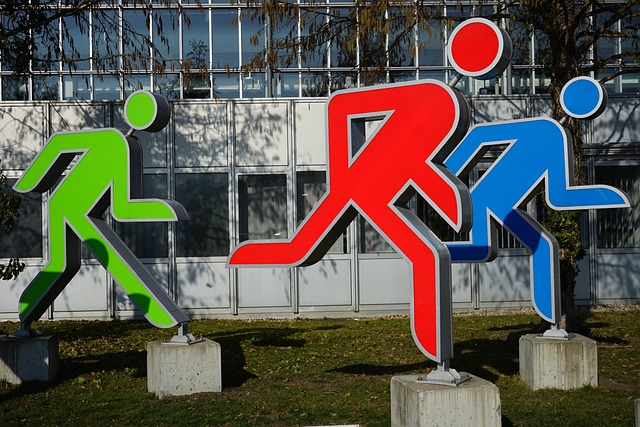Collagen stimulation is a holistic approach to combating signs of aging by enhancing skin elasticity and firmness naturally. As collagen production declines with age, techniques like topical applications of retinol, vitamin C, peptides, and antioxidants can trigger fibroblast activity for increased collagen synthesis. Lifestyle factors such as diet, exercise, adequate sleep, and sun protection also play significant roles. Modern non-invasive treatments using radiofrequency or lasers further stimulate collagen production, offering safer alternatives to surgery for visible skin tightening results. Combining topical care with lifestyle modifications and targeted treatments ensures optimal collagen stimulation for youthful-looking skin.
Collagen is the skin’s foundation, crucial for maintaining elasticity and a youthful appearance. As we age, natural processes lead to collagen depletion, resulting in wrinkles and sagging. Unlocking collagen stimulation is key to achieving tighter, firmer skin. This article explores various strategies, from scientific insights and topical treatments to lifestyle changes and advanced technologies, focusing on effective collagen boosting techniques for optimal skin tightening results.
Understanding Collagen: The Skin's Foundation

Collagen is a protein that serves as the building block for our skin, providing structure and elasticity. It’s like the foundation of a house, holding everything together and keeping our skin looking firm and youthful. As we age, natural collagen production slows down, leading to wrinkles, sagging, and a loss of skin firmness. Understanding this process is crucial in appreciating the importance of collagen stimulation for skin tightening.
Collagen boosting is a term used to describe various techniques and products that aim to stimulate the body’s natural production of collagen. By encouraging collagen stimulation, these methods can help restore the skin’s elasticity, reduce fine lines and wrinkles, and enhance overall skin texture. This approach leverages the body’s inherent ability to renew itself, offering a more natural alternative to certain cosmetic procedures.
Aging and Collagen Depletion: A Natural Process

As we age, our bodies undergo natural changes that affect every aspect, including our skin’s elasticity and firmness. One significant process is the depletion of collagen, a protein essential for maintaining youthful-looking skin. Collagen provides structure and support to our skin cells, keeping them plump and supple. However, after around the age of 27, collagen production starts to slow down, leading to noticeable signs of aging like fine lines, wrinkles, and reduced skin elasticity. This natural depletion is a result of various factors, including environmental exposure, lifestyle choices, and genetics.
Collagen stimulation becomes crucial at this juncture to counteract these effects. Our skin’s ability to regenerate collagen naturally diminishes over time, making external intervention beneficial. By incorporating products or treatments that promote collagen stimulation, we can support our skin’s natural healing process and enhance its production of this vital protein. This, in turn, helps improve skin texture, reduce the appearance of wrinkles, and restore a more youthful and firm complexion.
Unlocking Collagen Stimulation: Scientific Insights

Collagen is a protein that plays a pivotal role in maintaining skin elasticity and youthful appearance. Unlocking collagen stimulation involves understanding the intricate process of how our bodies produce this vital component. Scientifically, it’s known that certain factors can trigger collagen synthesis, leading to improved skin texture and reduced signs of aging. Key players include specific peptides, vitamins like Vitamin C and E, and natural compounds found in plants. These elements work synergistically to support fibroblasts—the cells responsible for collagen production.
Research has unveiled innovative ways to enhance collagen stimulation, such as through topical applications of certain creams and serums that contain these active ingredients. Additionally, lifestyle factors like adequate sleep, sun protection, and a balanced diet can significantly impact collagen levels. By harnessing the power of science and incorporating targeted skincare routines, individuals can unlock their skin’s potential for enhanced elasticity and a rejuvenated appearance.
Topical Strategies for Enhanced Collagen Production

Collagen stimulation is a key strategy in skin tightening routines, as it encourages the production of this vital protein that supports skin elasticity and structure. Topical strategies play a significant role here. Certain active ingredients, such as retinol, vitamin C, and peptides, have been proven to enhance collagen synthesis when applied topically. Retinol, for instance, speeds up cell turnover, creating a more robust collagen framework. Vitamin C, with its powerful antioxidant properties, protects existing collagen from damage while stimulating its production. Peptides, on the other hand, mimic natural signals that trigger collagen and elastin synthesis, resulting in improved skin texture and reduced appearance of fine lines and wrinkles.
These topical strategies not only boost collagen levels but also provide anti-aging benefits by reducing the signs of skin aging. When incorporated into a consistent skincare routine, products containing these ingredients can significantly enhance skin firmness and overall complexion. Remember that consistency is key; regular application will yield better results in collagen stimulation compared to sporadic use.
Lifestyle Changes: Nutrition and Exercise for Collagen Health

Collagen stimulation goes beyond topical creams; it starts from within through lifestyle changes. Nutrition plays a vital role in collagen health, as certain foods are rich in amino acids, vitamins, and minerals essential for collagen production. Incorporating more citrus fruits, berries, nuts, seeds, leafy greens, and lean proteins into your diet can significantly boost collagen levels.
Regular exercise is another crucial component. Physical activity increases blood flow to the skin, which helps deliver oxygen and nutrients vital for collagen synthesis. Moreover, exercise reduces inflammation and promotes the production of collagen-boosting hormones, ensuring your skin remains tight and elastic over time.
The Role of Skincare Products in Collagen Boosting

Skincare products play a pivotal role in collagen stimulation, which is key to achieving and maintaining skin tightness. Many modern formulations target this process due to its profound impact on skin health and appearance. Collagen, the primary protein responsible for skin elasticity, tends to diminish with age, leading to fine lines and sagging. The right skincare routine can help combat this natural decline.
Products containing ingredients like retinol, vitamin C, peptides, and certain antioxidants are particularly effective in collagen stimulation. Retinol, a form of vitamin A, promotes cell turnover and collagen production. Vitamin C, on the other hand, aids in synthesizing procollagen, a precursor to collagen, while also protecting skin from damage caused by free radicals. Peptides mimic the structure of collagen, signaling cells to produce more, and antioxidants neutralize these harmful molecules, ensuring an optimal environment for collagen synthesis.
Advanced Technologies for Non-Invasive Skin Tightening

The advancement of technology has revolutionized non-invasive skin tightening treatments, offering effective solutions for those seeking improved skin elasticity and a youthful appearance. One prominent method is collagen stimulation, which harnesses the power of natural processes to enhance the skin’s structural support. Modern devices utilize targeted energy delivery systems, such as radiofrequency (RF) or laser technologies, to prompt the body’s natural response of producing more collagen. These advanced tools can penetrate deeper layers of the skin, stimulating fibroblasts and encouraging the synthesis of new collagen fibers.
Non-invasive procedures like these provide a safe and effective alternative to surgical options, with minimal recovery time. By focusing on collagen stimulation, treatments can visibly reduce the appearance of fine lines, wrinkles, and saggy skin, offering a more toned and supple complexion. This innovative approach to skincare benefits from continuous technological enhancements, ensuring that individuals can achieve desirable skin tightening results without undergoing extensive or invasive procedures.
Combining Approaches for Optimal Results

For optimal results in skin tightening, a multifaceted approach that combines various techniques is often the best strategy. While collagen boosting through topical creams and serums can significantly improve skin elasticity, it’s just one piece of the puzzle. Incorporating lifestyle changes such as a balanced diet rich in vitamin C, proline, lysine, and other essential nutrients that support collagen production, along with regular exercise targeting major muscle groups, can further enhance the effects of collagen stimulation.
In addition, targeted treatments like microdermabrasion, chemical peels, or laser therapy can help exfoliate dead skin cells, stimulating the body’s natural collagen renewal processes. Combining these approaches not only accelerates the skin-tightening process but also ensures more sustained results. Remember that consistency is key; maintaining a regular routine of healthy habits and targeted treatments will lead to healthier, firmer skin in the long run.
Safety, Expectations, and Future Trends

When it comes to collagen boosting for skin tightening, safety should always be a top priority. Collagen stimulation treatments, such as topical creams, peptides, and certain procedures like microneedling or injections, have gained popularity due to their potential to reduce fine lines and improve skin elasticity. However, it’s essential to consult with a qualified dermatologist to understand the specific risks and benefits tailored to your needs. Not all treatments are suitable for everyone, and proper guidance ensures both effectiveness and safety.
Expectations play a crucial role in the success of any collagen boosting regimen. While these treatments can lead to significant improvements, results may vary. The future trends in collagen stimulation look promising with advancements in technology and science. Innovations like targeted protein delivery systems and gene therapy hold potential for more precise and long-lasting results. Additionally, ongoing research into stem cell therapies and biomimetic materials could revolutionize skin tightening techniques, offering natural and sustainable alternatives for maintaining youthful-looking skin.
